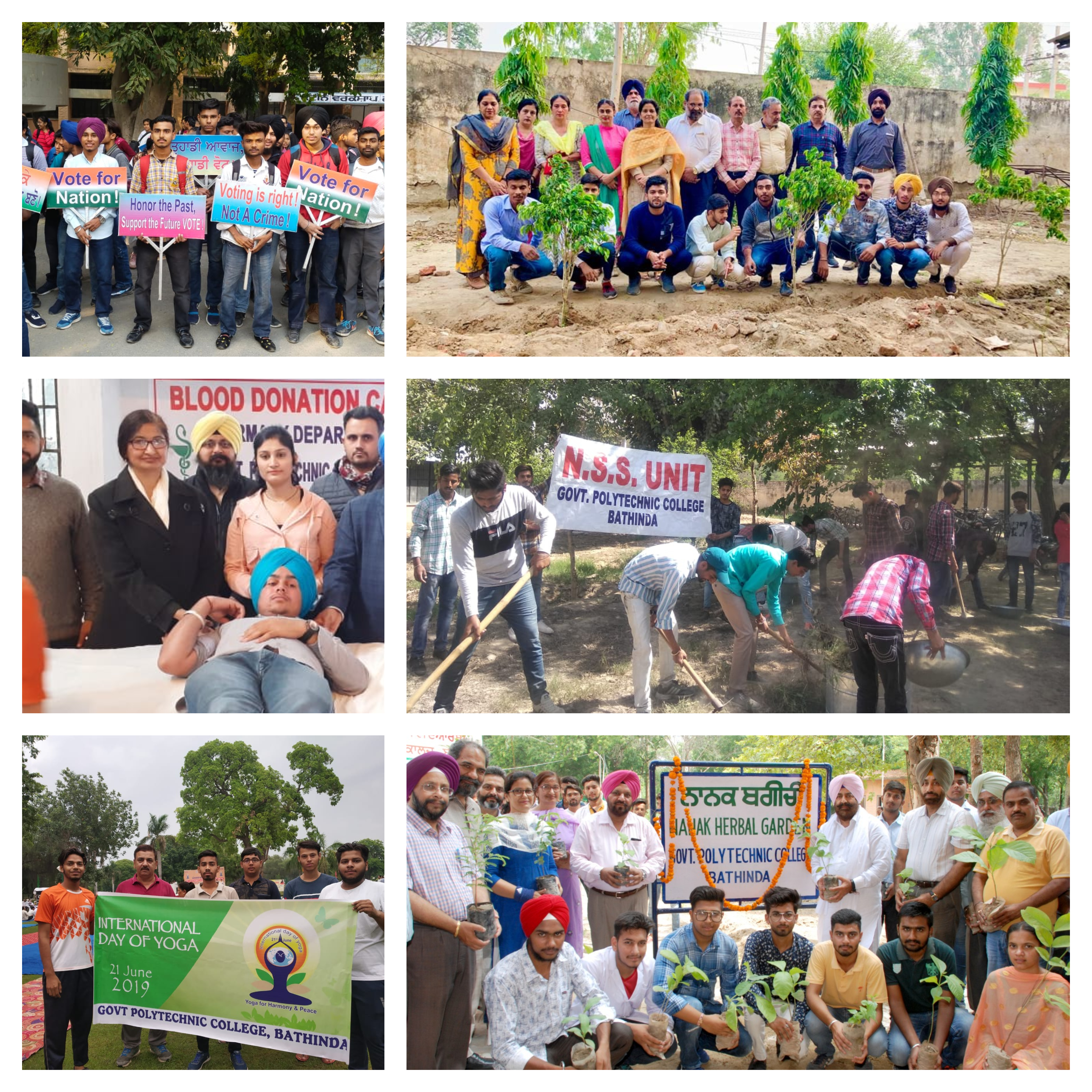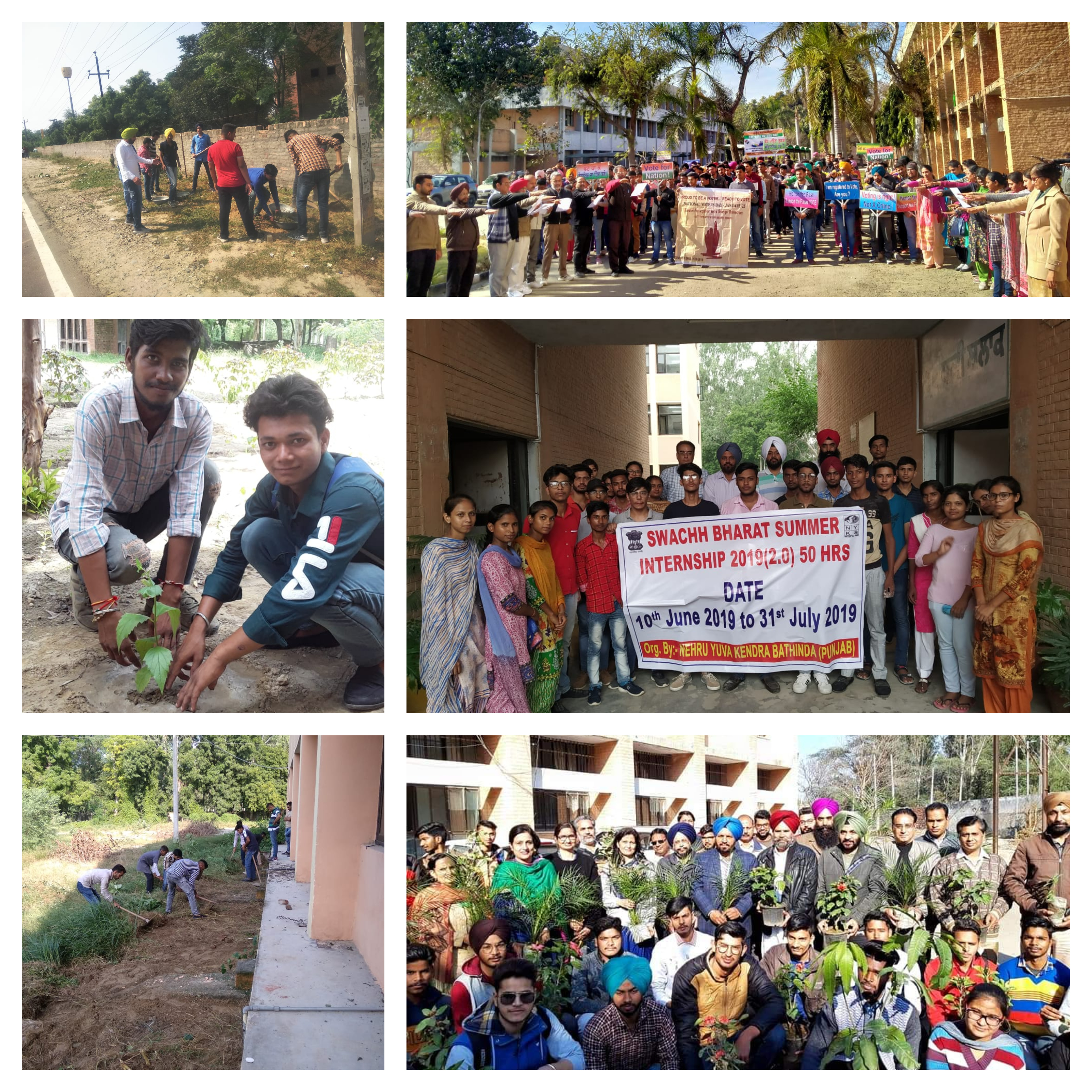Sports
The main objective of the Sports department at GPC Bathinda is to inspire the student by fostering healthy lifestyles through involvement in physical education and sports activities that cultivate lifelong health. Our institute prepares student to face rapidly changing world with confidence and a sense of responsibility to make the world a better place. To that end, the sports department views its interactions with students through physical education programmes which help them to discover, develop and test their skills to create a positive change. We provide adequate environment, infrastructure to pursue sports activities and provide playing opportunities to the wide range of students regardless of the gender or cultural backgrounds.
The department simultaneously prepare teams for intra-college and inter-college competitions. Various tournaments/meet and intramural activity are organized throughout the session. The campus intramural sports component strives to provide a variety of opportunities that contribute to and promote the six dimensions of wellness: physical, emotional, social, spiritual, intellectual and environmental. We are dedicated to make intramural part of campus life. Our goal is to continuously create and provide a competitive, safe and enjoyable atmosphere that encourages teamwork, leadership development as well as lifelong pattern of positive activity. The Institute offers well maintained Basketball Court, Volleyball Court, Football Ground, Badminton Court, Table Tennis Court for students to create a perfect balance among their academics and physical well being.
Sports Officer
Mr. Gaurav Jindal
Lecturer (Architectural Assistantship)
email: gaurav.jindal89@punjab.gov.in

NSS
History and Growth of NSS
In India, the idea of involving students in the task of national service dates back to the times of Mahatma Gandhi, the father of the nation. The central theme which he tried to impress upon his student audience time and again, was that they should always keep before them, their social responsibility. The first duty of the students should be, not to treat their period of study as one of the opportunities for indulgence in intellectual luxury, but for preparing themselves for final dedication in the service of those who provided the sinews of the nation with the national goods & services so essential to society. Advising them to form a living contact with the community in whose midst their institution is located, he suggested that instead of undertaking academic research about economic and social disability, the students should do “something positive so that the life of the villagers might be raised to a higher material and moral level”.
The post-independence era was marked by an urge for introducing social service for students, both as a measure of educational reform and as a means to improve the quality of educated manpower. The University Grants Commission headed by Dr. Radhakrishnan recommended introduction of national service in the academic institutions on a voluntary basis with a view to developing healthy contacts between the students and teachers on the one hand and establishing a constructive linkage between the campus and the community on the other hand.
On September 24, 1969, the then Union Education Minister Dr. V.K.R.V. Rao, launched the NSS programme in 37 universities covering all States and simultaneously requested the Chief Ministers of States for their cooperation and help. It was appropriate that the programme was started during the Gandhi Centenary Year as it was Gandhiji who inspired the Indian youth to participate in the movement for Indian independence and the social uplift of the downtrodden masses of our nation. The cardinal principle of the programme is that it is organised by the students themselves and both students and teachers through their combined participation in social service, get a sense of involvement in the tasks of national development.
Community service rendered by university level students has covered several aspects like adoption of villages for intensive development work, carrying out the medico-social surveys, setting up of medical centres, programmes of mass immunization, sanitation drives, adult education programmes for the weaker sections of the community, blood donation, helping patients in hospitals, helping inmates of orphanages and the physically handicapped etc. NSS volunteers did commendable relief work during natural calamities/emergencies such as cyclones, floods, famine, earthquake, etc. From time to time all over the country. The NSS students have also done useful work in organising campaigns for eradication of social evils, and popularization of the nationally accepted objectives like nationalism, democracy, secularism, social harmony and development of scientific temper.
Purpose:
> To develop a sense of national integration and social responsibility.
> In the current context, mobilization of measures to prevent social ills, and to restore moral values, to educate college students about social responsibility as well as education.
> Understanding social problems, evils and finding ways to cure them.
> Finding practical solutions to individual and group problems.
> Develop a sense of responsibility sharing through leadership and group spirit.
> Creating a sense of cleanliness, care, clean environment, and a clean India.
> Conducting awareness camps on social security laws for women and children, the elderly, youth.
Program Officer
Mr. Kamal Garg
Lecturer (Electrical Engineering)
email: kamal.garg02@punjab.gov.in
Asstt. Program Officer
Dr. Harpreeet Singh
Librarian
email: hpbhan22@gmail.com

